第26章 CHAPTER IX THE FAUN AND NYMPH(1)
Mirian's sadder mood, it might be, had at first an effect on Donatello s spirits. It checked the joyous ebullition into which they would otherwise have effervesced when he found himself in her society, not, as heretofore, in the old gloom of Rome, but under that bright soft sky and in those Arcadian woods. He was silent for a while; it being, indeed, seldom Donatello's impulse to express himself copiously in words. His usual modes of demonstration were by the natural language of gesture, the instinctive movement of his agile frame, and the unconscious play of his features, which, within a limited range of thought and emotion, would speak volumes in a moment.
By and by, his own mood seemed to brighten Miriam's, and was reflected back upon himself. He began inevitably, as it were, to dance along the wood-path; flinging himself into attitudes of strange comic grace. Often, too, he ran a little way in advance of his companion, and then stood to watch her as she approached along the shadowy and sun-fleckered path.
With every step she took, he expressed his joy at her nearer and nearer presence by what might be thought an extravagance of gesticulation, but which doubtless was the language of the natural man, though laid aside and forgotten by other men, now that words have been feebly substituted in the place of signs and symbols. He gave Miriam the idea of a being not precisely man, nor yet a child, but, in a high and beautiful sense, an animal, a creature in a state of development less than what mankind has attained, yet the more perfect within itself for that very deficiency.
This idea filled her mobile imagination with agreeable fantasies, which, after smiling at them herself, she tried to cofivey to the young man.
"What are you, my friend?" she exclaimed, always keeping in mind his singular resemblance to the Faun of the Capitol. "If you are, in good truth, that wild and pleasant creature whose face you wear, pray make me known to your kindred. They will be found hereabouts, if anywhere. Knock at the rough rind of this ilex-tree, and summon forth the Dryad! Ask the water-nymph to rise dripping from yonder fountain, and exchange a moist pressure of the hand with me! Do not fear that I shall shrink; even if one of your rough cousins, a hairy Satyr, should come capering on his goat-legs out of the haunts of far antiquity, and propose to dance with me among these lawns! And will not Bacchus,--with whom you consorted so familiarly of old, and who loved you so well,--will he not meet us here, and squeeze rich grapes into his cup for you and me?"Donatello smiled; he laughed heartily, indeed, in sympathy with the mirth that gleamed out of Miriam's deep, dark eyes. But he did not seem quite to understand her mirthful talk, nor to be disposed to explain what kind of creature he was, or to inquire with what divine or poetic kindred his companion feigned to link him. He appeared only to know that Miriam was beautiful, and that she smiled graciously upon him; that the present moment was very sweet, and himself most happy, with the sunshine, the sylvan scenery, and woman's kindly charm, which it enclosed within its small circumference. It was delightful to see the trust which he reposed in Miriam, and his pure joy in her propinquity; he asked nothing, sought nothing, save to be near the beloved object, and brimmed over with ecstasy at that simple boon. A creature of the happy tribes below us sometimes shows the capacity of this enjoyment; a man, seldom or never.
"Donatello," said Miriam, looking at him thoughtfully, but amused, yet not without a shade of sorrow, "you seem very happy; what makes you so?""Because I love you!" answered Donatello.
He made this momentous confession as if it were the most natural thing in the world; and on her part,--such was the contagion of his simplicity,-Miriam heard it without anger or disturbance, though with no responding emotion. It was as if they had strayed across the limits of Arcadia; and come under a civil polity where young men might avow their passion with as little restraint as a bird pipes its note to a similar purpose.
"Why should you love me, foolish boy?" said she. "We have no points of sympathy at all. There are not two creatures more unlike, in this wide world, than you and I!""You are yourself, and I am Donatello," replied he. "Therefore I love you!
There needs no other reason."
Certainly, there was no better or more explicable reason. It might have been imagined that Donatello's unsophisticated heart would be more readily attracted to a feminine nature of clear simplicity like his own, than to one already turbid with grief or wrong, as Miriam's seemed to be. Perhaps, On the other hand, his character needed the dark element, which it found in her. The force and energy of will, that sometimes flashed through her eyes, may have taken him captive; or, not improbably, the varying lights and shadows of her temper, now so mirthful, and anon so sad with mysterious gloom, had bewitched the youth. Analyze the matter as we may, the reason assigned by Donatello himself was as satisfactory as we are likely to attain.